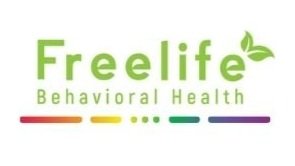
Breaking the Stigma: Why Therapy Matters for Black and POC Communities
Explore the impact of cultural trauma, its historical roots, and strategies for healing through community connection and culturally competent care.

The Unique Mental Health Challenges BIPOC Individuals Face & How Therapy Helps
Explore the challenges of mental health in marginalized communities, uncover systemic barriers, and find support through culturally competent therapy.

Understanding Asexuality: What It Is and What It Isn’t
Understand the key differences between asexual vs aromantic identities, their unique experiences, and the diverse forms of attraction and connection.

Beyond the Stigma: How BDSM-Informed Therapy Supports Mental Health and Identity
Discover BDSM-Informed Therapy: Support for mental health, identity, and relationships through understanding and acceptance.

Exploring Kink Therapy: How a Kink-Informed Therapist Can Support Your Mental Health
Explore Kink-Informed Therapy: How a kink-informed therapist can support your mental health, relationships, and personal growth.

Unlocking the Mind: The Psychology of BDSM
Explore The Psychology of BDSM: Understand the neuroscience, emotional connection, and personal identity behind BDSM practices.

It's Never Too Late: The Journey of Coming Out in Later Life
Coming Out in Later Life: Embrace your true self at any age. Discover the journey, challenges, and joys of living authentically.

Exploring the World of Kink Relationships: What They Are and How They Work
Explore Kink Relationships: Understand non-traditional intimacy and power dynamics, built on trust, communication, and mutual consent.

Breaking the Mold: Understanding the Non-Monogamy Definition
Discover the Non-Monogamy Definition: Explore diverse relationship structures, key definitions, and ethical practices.

Understanding ENM Relationship Types: Expanding the Definition of Love
ENM relationship types: Explore the various forms of ethical non-monogamy, from polyamory to relationship anarchy, and find what works for you.

Exploring the Types of Non Monogamous Relationships: Redefining Love and Commitment
Types of non-monogamous relationships: Discover polyamory, open relationships, swinging, relationship anarchy, and more.

Redefining the Rules: Exploring the Unconventional Marriage Meaning
Unconventional marriage meaning: Explore diverse connections, from polyamory to non-cohabiting partnerships, breaking traditional norms.

Understanding the Unconventional Relationship Meaning: Breaking the Mold of Modern Love
Unconventional relationship meaning: Explore diverse connections, from polyamory to non-cohabiting partnerships, breaking traditional norms.

Managing Anxiety as a Queer Individual: Practical Tools and Tips
Managing stress: Practical tools and tips to reduce anxiety, boost resilience, and improve overall well-being.

How to Deal with Anxiety and Overwhelm from Current Events in the USA
Feeling Overwhelmed: Discover effective techniques to reduce anxiety, boost resilience, and improve overall well-being.

What to Do When Cheating Happens: Rebuilding Trust in Relationships
Discover effective strategies for cheating recovery and rebuilding trust in relationships. Learn how to navigate the emotional fallout and grow stronger together.

Healing Shame Around Kink and Sexual Expression
Overcoming sexual shame starts with self-compassion. Take actionable steps to heal and embrace your authentic sexual expression.

Navigating Open Relationships: Communication Tips for Success
Navigate open relationships with our communication tips. Learn to set boundaries, address jealousy, and build trust for a healthy, fulfilling dynamic.

How to Build Community as a Gay Man in Chicago
Discover how to build community as a gay man in Chicago. Find tips on connecting with the LGBTQ+ community and creating lasting friendships.

